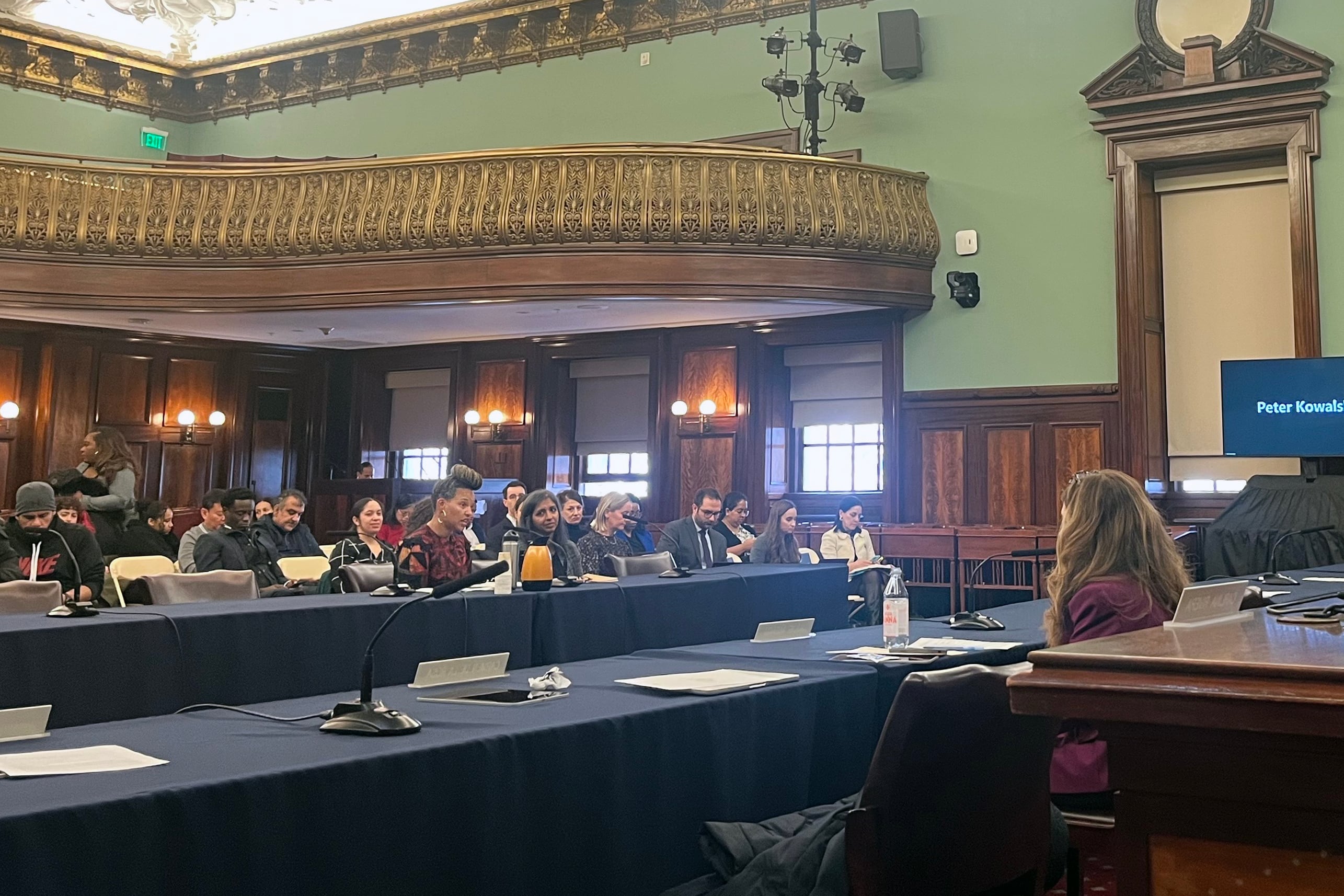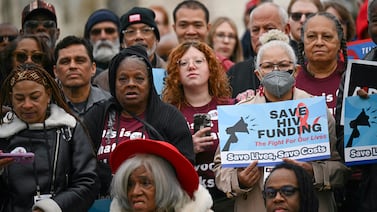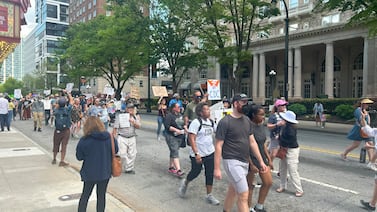Public health, explained: Sign up to receive Healthbeat’s free New York City newsletter here.
The New York City Department of Health and Mental Hygiene has started to feel the effects of recent turmoil at federal health agencies.
Among hundreds of recent terminations at the Centers for Disease Control and Prevention were seven CDC employees assigned to the city Health Department, Dr. Michelle Morse, the acting health commissioner, told City Council members during an oversight hearing on Wednesday. The agency is attempting to retain those employees, whom Morse described as “people with tremendous expertise.”
The Health Department has not been notified of any cuts to the $600 million it receives from the federal government, most of which funds infectious disease control and emergency preparedness work, according to Morse. But the possibility of those cuts looms over the city’s budget — and the state’s.
Additionally, under the new Trump administration, the Health Department initially faced weeks of silence from the CDC, an agency it relies on for up-to-date public health information, a situation Morse described as “very risky.”
The federal public health infrastructure has been thrown into chaos in recent weeks. The Trump administration has moved to withdraw the United States from the World Health Organization, vaccine skeptic Robert F. Kennedy Jr. has taken the helm of the Department of Health and Human Services, and scores of federal scientists and public health workers have been abruptly dismissed.
For many New York City leaders, those developments have raised questions about how the municipal public health infrastructure will be able to withstand the challenges ahead, especially as bird flu becomes an increasing local concern, the number of New Yorkers with influenza remains high, and the state faces its first case of clade I mpox.
“No longer can we rely on our federal public health institutions to utilize best practices and follow the science,” Council Member Lynn Schulman, who represents parts of Queens and chairs the Committee on Health, said during the hearing.
Lawmakers pressed Morse on how the Health Department would respond to potentially significant federal changes. Morse repeatedly emphasized that the agency would remain committed to its mission: “No matter what lies ahead, our efforts will continue to be driven by data, science, and health equity.”
One of the largest public health agencies in the world, the Health Department runs on a roughly $2 billion budget, with about 7,000 employees. The majority of the agency’s funding comes from the city, in addition to the state and federal governments.
The Health Department expects the federal government to uphold its funding commitments, Morse said, echoing the position articulated by state health commissioner Dr. James McDonald during a state budget hearing earlier this month. But Morse also acknowledged her own fears.
“One concern that keeps me up at night is that our federal funding could be contingent on adhering to a new childhood vaccination schedule that we potentially disagree with,” she said.
Kennedy vowed this week to investigate the childhood vaccination schedule, a list of immunization recommendations for children against diseases like polio and measles, mumps, and rubella.
In recent years, vaccination rates have been falling, alarming public health experts. Measles, a highly contagious airborne disease, was declared eliminated from the United States in 2000, but measles vaccination rates have decreased nationwide in recent years. Outbreaks of the disease have emerged recently, including in Georgia and in Texas, which faces its worst measles outbreak in decades.
New York City saw a significant measles outbreak beginning in 2018, with 649 confirmed cases, most of which emerged in the Orthodox Jewish community of Williamsburg. Last year, the Health Department noted a significant decline in pediatric MMR coverage, with 85% of children ages 4-6 having received two doses of the vaccine, compared to 99% before the Covid-19 pandemic.
Council Member Francisco Moya, who represents parts of Queens and chairs the Subcommittee on Covid and Infectious Diseases, asked Morse how the agency was preparing for potential changes to federal vaccine guidance.
Morse said that regardless of any guidance the federal government might issue, the Health Department would still be able to issue its own recommendations, drawing on its own data and expertise, as well as lean on the New York City Board of Health, an expert body that oversees the city’s Health Code.
She added that she would seek support from the city and the state to ensure the continuation of an immunization program that is “rigorous, science-based, and effective in protecting the health of New Yorkers.”
If federal funding cuts were to occur, the agency would become increasingly reliant on state and local funds, Morse noted. She expressed support for increasing the state’s financial contribution to New York City’s public health work — known as Article 6 funding — which was cut in 2019, resulting in a loss to the agency of about $60 million to $90 million annually.
Despite the uncertainty ahead, Morse stressed that the Health Department remains committed to serving New Yorkers.
“Trust is gained in drops and lost in buckets,” she said. “The New York City Health Department is committed to gaining your trust drop by drop. For more than two centuries, we’ve been the pinnacle of public health in the United States. That should not change now.”
Eliza Fawcett is a reporter covering public health in New York City for Healthbeat. Contact Eliza at efawcett@healthbeat.org .







